What is Vendor Managed Inventory? The automotive industry, known for its rigorous standards and demanding timelines, continually seeks innovative solutions to streamline manufacturing processes and reduce overheads. One pivotal strategy that has emerged to address these needs involves the utilization of C-class components in conjunction with Vendor Managed Inventory (VMI) systems.
This approach not only offers a streamlined supply chain but also ensures the timely and efficient delivery of essential manufacturing parts. In this article, we delve into the advantages of C-class components in meeting Original Equipment Manufacturer (OEM) automotive fasteners’ needs, overcoming industry challenges, and how services aligned to customer project needs can significantly enhance operational efficiency.
What are C-Class Components?
C-class components are typically low-cost items that, despite their low individual value, are critical to the manufacturing and operational processes. These include fasteners, seals, springs, and other hardware essential to the assembly of automotive parts. Although they may not command the same attention as more prominent, higher-value components, their availability and reliability are crucial for uninterrupted production lines.
VMI: A Synopsis
What is Vendor Managed Inventory? It is a streamlined approach to inventory management and order fulfillment. Under this model, the supplier maintains the inventory levels, taking responsibility for monitoring stock and ensuring that the OEM has the necessary components at the right time. This arrangement reduces the OEM’s burden of inventory management, allowing them to focus on core manufacturing and operational efficiencies.
Advantages of C-Class Components for Automotive Fasteners Needs
Cost Efficiency and Streamlined Inventory
The integration of C-class components through VMI systems offers a dual advantage: cost efficiency and a streamlined inventory. By outsourcing the management of these low-cost but essential items, OEMs can reduce carrying costs and minimize the risk of production delays due to stockouts. This efficiency directly impacts the bottom line, allowing OEMs to allocate resources more effectively.
Enhanced Supply Chain Flexibility
VMI provides a flexible supply chain solution that can adapt to fluctuating demand. Suppliers monitor OEM usage patterns and can adjust supply levels dynamically, ensuring that production is not hindered by shortages or excessive inventory. This flexibility is particularly beneficial in the automotive industry, where production schedules can change rapidly.
Focused Operational Efficiency
With the logistical aspects of C-class components managed by the vendor, OEMs can concentrate on their core competencies. This focus enhances operational efficiency, allowing for the optimization of production processes and quality control measures. The result is a smoother, more reliable production line that can meet delivery timelines with greater consistency.
What is Vendor Managed Inventory – Overcoming Industry Challenges
The future is bright yet the automotive industry faces several challenges, including the need for cost reduction, quality assurance, and meeting tight deadlines. Implementing a VMI system for C-class components directly addresses these challenges by:
- Reducing Inventory Costs: Minimizing the amount of capital tied up in inventory.
- Ensuring Quality and Compliance: Vendors specializing in automotive fasteners are more likely to adhere to strict industry standards, reducing the risk of quality issues.
- Meeting Deadlines: With vendors proactively managing stock levels, OEMs can avoid delays caused by component shortages.
Strategic VMI for Supply Chain Optimization
In reference to the, “What is Vendor Managed Inventory” questio, this stands out as a unique and strategic option for companies seeking to optimize their supply chain management, improve operational efficiencies, and enhance customer satisfaction. This model, where the supplier assumes the responsibility of managing the inventory of its customer, brings several distinctive advantages that set it apart from traditional inventory management methods. Here are the key elements that make VMI a uniquely beneficial option for companies:
Streamlined Supply Chain
VMI simplifies the supply chain by reducing the layers of communication and decision-making typically involved in reordering processes. By allowing vendors to monitor stock levels and take charge of replenishing inventory as needed, companies can eliminate inefficiencies, reduce lead times, and ensure a smoother flow of goods. This streamlined approach leads to more predictable supply chain operations, enhancing the overall agility and responsiveness of businesses.
Enhanced Inventory Optimization
One of the standout benefits of VMI is its ability to optimize inventory levels more effectively than conventional inventory management systems. Vendors have a vested interest in maintaining optimal inventory levels—not too high to incur unnecessary carrying costs, nor too low to risk stockouts and production halts. With access to sales and inventory data, vendors can apply their expertise and analytical tools to forecast demand accurately, adjust inventory levels dynamically, and thus minimize the risk of overstocking or understocking.
Cost Reduction: What is Vendor Managed Inventory?
VMI can significantly reduce costs associated with inventory management for companies. By transferring the responsibility of inventory holding to vendors, companies can lower their inventory carrying costs, including storage, insurance, and obsolescence. Furthermore, the efficiency gains from streamlined supply chain operations can lead to reductions in ordering and administrative costs, as well as potential economies of scale in purchasing.
Stronger Vendor-Customer Relationships
VMI fosters a closer collaboration and partnership between vendors and their customers. This relationship is built on trust, as both parties work together towards mutual goals of inventory efficiency and service level improvements. Over time, this collaboration can lead to better communication, enhanced understanding of each other’s business needs and constraints, and opportunities for joint strategic initiatives. Stronger relationships also facilitate more open feedback loops, which can drive continuous improvement in products and processes.
Improved Service Levels and Customer Satisfaction
With VMI, companies often experience higher service levels due to better availability of products and reduced incidence of stockouts. This reliability can significantly enhance customer satisfaction, as end-users benefit from consistent supply and faster fulfillment of orders. For companies, this translates into stronger customer loyalty, potential for increased sales, and a competitive edge in the market.
Focus on Core Competencies
Adopting a VMI approach allows companies to delegate the complexities of inventory management to their vendors, who are likely better equipped to handle such tasks efficiently. This enables companies to focus more on their core competencies, whether it be innovation, manufacturing excellence, or customer service. By concentrating resources and efforts on areas where they can add the most value, companies can drive growth and improve their competitive positioning.
Data-Driven Decision Making
VMI systems often leverage sophisticated data analytics and forecasting tools that enable data-driven decision-making. With real-time access to sales and inventory data, both vendors and their customers can gain insights into market trends, consumer behaviors, and potential areas for optimization. This data-centric approach helps in making more informed decisions, aligning inventory strategies with business objectives, and adapting quickly to changing market conditions.
Services Aligned to Customer Project Needs
A key aspect of leveraging C-class components and VMI effectively is choosing a supplier that offers services tailored to specific project needs. These services include:
- Customized Inventory Management Solutions: Suppliers can offer bespoke inventory solutions that align with the OEM’s production schedule and volume requirements.
- Rapid Response and On-time Delivery: The ability to act quickly and adjust to changing needs is crucial. Suppliers must demonstrate a track record of on-time delivery of tailored solutions.
- Technical Support and Consultation: Suppliers with in-depth knowledge of C-class components can provide valuable insights, helping OEMs make informed decisions about their fastener requirements.
Choosing the Right Part Supplier for OEM Automotive Fasteners and Service
Selecting a supplier for OEM automotive fasteners involves considering several factors:
- Industry Expertise: Look for suppliers with specific experience in the automotive sector.
- Quality Assurance: Suppliers should have robust quality control systems in place, ideally with industry-recognized certifications.
- Supply Chain Capabilities: Evaluate the supplier’s ability to manage inventory and respond to rapid changes in demand.
Conclusion
The strategic use of C-class components, combined with an effective VMI system, offers a competitive advantage to OEMs in the automotive industry.
In conclusion, VMI offers a unique proposition for companies by marrying efficiency gains with strategic benefits. It not only streamlines supply chain operations but also fosters collaborative relationships, drives cost savings, and enables companies to better serve their customers. As businesses continue to seek ways to stay competitive in fast-paced markets, VMI represents a compelling option that aligns with the goals of supply chain optimization and customer satisfaction.
For more information, reach out to us at Fasco.








